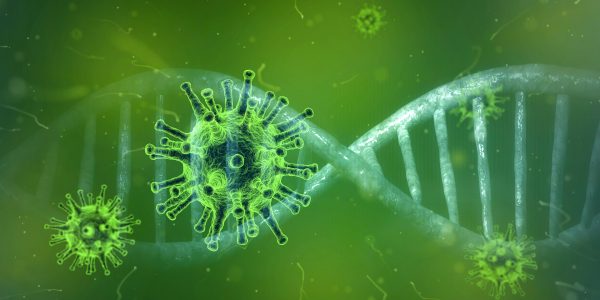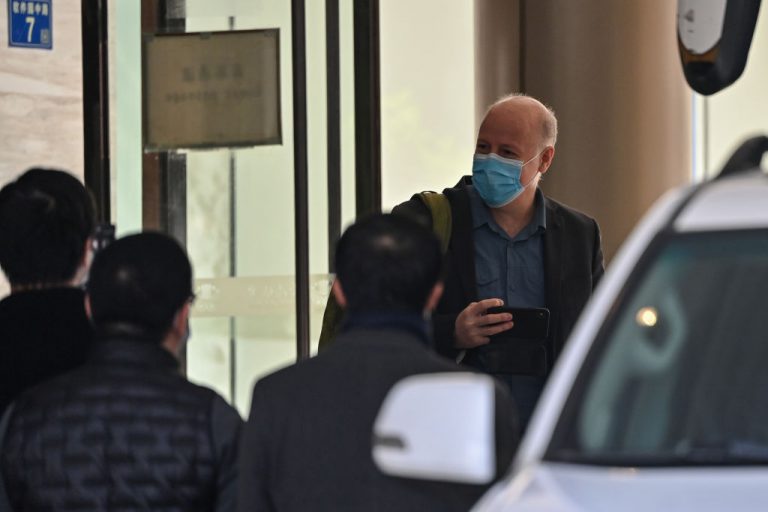Nonprofit EcoHealth Alliance (EHA) is currently under scrutiny for its alleged involvement in the Coronavirus Disease 2019 (COVID-19) pandemic. U.S. National Institutes of Health (NIH) is known to have funded EHA, which then transferred the funds to China’s Wuhan Institute of Virology (WIV) to conduct gain-of-function studies involving the modification of pathogens to make them more infectious. WIV is the epicenter of the coronavirus lab leak theory.
An investigation by The National Pulse found ties between Google and EcoHealth Alliance President Peter Daszak stretching back over a decade. Many studies that Daszak authored lists Google.org as one of the funding sources. Google.org, founded in 2005, is the charitable arm of the search engine giant, and disburses around 100 million dollars annually in grants and investments.

Peter Daszak’s studies that received funding from Google include:
- A 2010 research on bat flaviviruses. Jonathan Epstein, Vice President of EcoHealth, was a co-author of the study.
- A 2014 study on henipavirus spillover.
- A 2015 paper focused on herpes. Epstein also co-authored this study.
- A 2018 study paper written by EHA researchers.
The 2018 paper, “Serologic and Behavioral Risk Survey of Workers with Wildlife Contact in China,” potentially laid the foundation for the theory that severe acute respiratory syndrome (SARS)-like viruses could emerge from a wet market. The study was conducted in Guangdong province.
“In southern China provinces, including Guangdong, a significant percentage of the population obtains fresh meat for consumption from wet markets, community markets that specialize in selling and butchering live animals, including animals that are rare and endangered. Research has demonstrated that human-animal interfaces, such as within these wet markets, provide an ideal environment for infectious disease emergence, transmission, and amplification,” the paper states.
Daszak and COVID-19
Success
You are now signed up for our newsletter
Success
Check your email to complete sign up
Daszak served in the World Health Organization (WHO) team that went to China in January 2021 to investigate the origins of the COVID-19 pandemic. After a controversial trip with limited access and conflicts of interest, the team concluded that the lab-leak theory was “extremely unlikely.”
However, Daszak had previously participated in a podcast interview on Dec. 9, 2019, in which he described his work on coronaviruses. “Coronaviruses, you can manipulate them in the lab pretty easily. The spike protein drives a lot of what happens with the coronavirus. You can get the sequence… insert it into the backbone of another virus… in the lab,” he said.
The interview occurred just three weeks before the Wuhan Municipal Health Commission officially announced the outbreak of the COVID-19 pandemic.
On Feb. 18, 2020, The Lancet medical journal published a letter signed by several scientists, which called the lab leak idea a “conspiracy theory.” In a series of tweets, entrepreneur Alexandros Marinos stated that seven of the 27 signatories in the letter were affiliated with EcoHealth, including Daszak.
“15 of the 27 signatories had major conflicts, considering how involved EcoHealth was with funding WIV, as was the Wellcome Trust. To dare write ‘We declare no competing interests’ in the letter, was a mockery of science and taxpayers everywhere,” Marinos tweeted.
On June 21, The Lancet posted an update to the letter, stating that “Some readers have questioned the validity of this disclosure, particularly as it relates to one of the authors, Peter Daszak… The Lancet invited the 27 authors of the letter to re-evaluate their competing interests. Peter Daszak has expanded on his disclosure statements for three pieces relating to COVID-19 that he co-authored or contributed.”
On April 21, three Republicans from the House Energy and Commerce Committee sent a letter to Daszak, inquiring about EcoHealth’s relationship with the WIV. The letter pointed out that EHA, partnered with the WIV, had “an extensive history” of bat coronavirus research in China. The WIV lists EHA as one of its eight international partners, and the only one in America.
The letter also asked EHA about its knowledge and access to a password-protected virus database. “The database is administered by the WIV’s researcher Dr. Shi Zhengli, with whom you and your team have had professional and financial ties since at least 2003. The database is estimated to contain 500 coronaviruses identified by EHA, and at least 100 unpublished sequences of bat beta coronaviruses that are relevant to the investigation of the SARS-CoV-2 origin,” the letter states.
With reporting by Arvind Datta.















